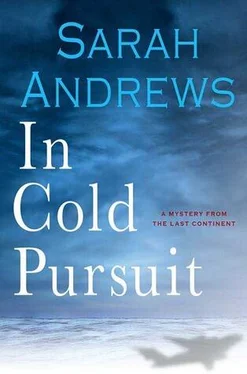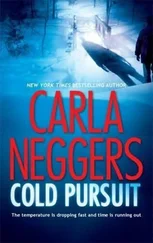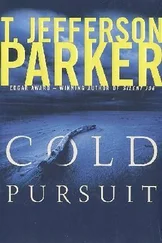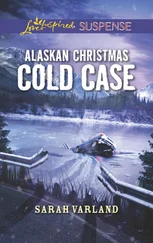Valena let herself into the room, dumped her duffel, and trudged sullenly toward the Chalet.
“It’s the earliest we could get you out,” the administrator explained when she got there. “Sorry. But your situation is rather unusual. We’re used to people staying here a bit longer before they redeploy.”
“I don’t mind staying, really. In fact, I’d like to stay. Prefer it. Greatly prefer it. I was hoping there’d be some word from Dr. Vanderzee. That he’d be coming back.”
The woman gave her a you-poor-thing look. “Sorry,” she said. “At least you don’t have to go through any more in-briefs. Or out-briefs, for that matter. You haven’t been anywhere and you’re not a PI, so there’s no paperwork to fill out.”
Right, I haven’t been anywhere at all. Suddenly, a thought occurred to Valena. “Could I become the PI?”
“I don’t think so.” She looked across the assembly room toward George Bellamy’s office. “I suppose you could ask, but… well, no. I don’t think so, dear.”
Valena stared at Bellamy’s door. The expression “a snowball’s chance in hell” filled her mind, consuming all hope. “Well, if for any reason you need to bump me from that flight, you just feel free to do so, okay? I’m supposed to be doing research for my master’s thesis, and I can just hunker down in the library at Crary and get plenty done. Really.”
The woman fixed her stare on her computer screen. “Welcome to Antarctica,” she said.
Valena said good-bye and headed out the door and turned away from 155 and away from the heartbeat of McMurdo before the tears began to roll down her cheeks. She was not given to fits of crying. Tears were pure humiliation: hot; useless; sad evidence of the collapse of her dreams. Right now she needed privacy. She ached for solace. She sought the out-of-doors.
The weather was clearing, the sky opening wide in its blinding pale blue. She followed a road up past several weather-beaten Quonset huts toward the conical prominence of Observation Hill. With each step away from the strange ant-hive of human endeavor called McMurdo, she felt more safe, more self-contained. It was difficult to make the hike in the enormous blue boots she had been issued. They were designed for staying warm while standing still on the ice, but the soft sides provided no ankle support, and the thick, stiff soles and layers of felt provided no arch support and the quilted liners tended to work around sideways, making her socks bunch up.
She was high above McMurdo when she heard the engine of one of the helicopters down on the pad below Crary Lab whine into life. She turned and looked down on the scene. The rotors began to turn. Was this a crew of scientists heading out across the ice toward the continent? They could be geologists going out to study the history of the landforms in the Dry Valleys, biologists on a mission to study the single-celled life forms that scraped out a meager existence in one of the frozen lakes there, or perhaps a team of glaciologists on their way to study a giant iceberg that had calved off the edge of the Ross Ice Shelf.
She surveyed the severe landscape. The wind had dropped to its usual nattering levels and the snow had stopped falling. The clouds were breaking up in the south, replaced by a high, scattered overcast. She could now see beyond the ice runway, clear past Black Island, and the first of the peaks on the Transantarctic Range were beginning to resolve themselves from the clouds.
Even though the blades were now turning so quickly that she could see only a blur, people were just loading into the helicopter. She thought that strange until she noticed their sense of urgency and a white van parked nearby. An ambulance? Was this a medical crew departing? Did that mean that search and rescue had found the missing man?
The helicopter lifted off, pivoted, and skimmed along the contours of the hill, then turned and accelerated away toward the end of Hut Point, staying so low that it skimmed barely fifty feet over a small wooden hut that was parked on the ice. It thudded heroically as it shrank into a dot and disappeared around the point.
Valena sat down on the clinkered ground, watching it go. Then she noticed that someone else was on the trail below her. Not ready to give up her privacy, she rose and continued up the steep slope toward Scott’s cross. The other person continued to gain on her. She picked up her pace, but still the other lone hiker overtook her before she reached the summit. Only as he came quite close and she saw his wild hat did she recognize him. It was Peter, the energy conservation engineer whom she had met in the galley during Sunday brunch.
“They’ve found Steve Myer,” he said. “Isn’t that a relief! I thought I’d come up here and watch them bring him in, offer my spiritual support.”
“Do they usually send a helicopter?”
“There’s nothing usual about this. In fact, nothing like this has ever happened, not so far as I can recall.”
“It looked like they sent a medical crew. That must mean he’s alive. Maybe he’s really cold and they need to warm him quickly.”
Peter looked uncertain. “Maybe that explains why he wandered off. Like maybe he’s all confused or something.”
“Does that happen much?”
Peter shook his head. He had kind, inquisitive eyes.
They stood together at the cross for several minutes in silence. Finally, they heard the return passage of the helicopter. It began as a faint pattering and grew again into a thunderous rumble as it emerged around the point, flying low and fast toward the helicopter pad. Someone had turned the white van around and opened its rear doors, waiting to receive the patient. The wild mechanical bird settled, and, even before the whine of its engine changed pitch or the whirl of the blades diminished from a blur to the spinning of individual blades, the personnel on board disembarked. In one quick motion, they transferred a stretcher from the helicopter to the van. Someone closed its doors, and they were off uphill toward the hospital.
“Well, they’re hurrying,” said Peter. “That means he’s still breathing. But what was he doing clear out around the point? I mean, even if you’re confused from some kind of injury, you don’t wander that far.” He shook his head. “I don’t know Steve except to say hi, but he seemed a reasonably smart man. Better than smart. In fact, he used to be a pharmacist.”
Valena cocked her head in question.
Peter chattered on. “Oh, yeah, you get all kinds down here. PhDs driving Cats just to be here. People get jealous of me because I’m actually doing what I was trained for.” He smiled shyly and looked intently into her eyes, as if mapping her.
Uncomfortable with this scrutiny, Valena turned toward the cross that dominated the top of the hill. “So this is a monument to Sir Robert Falcon Scott,” she said.
“Oh yeah. Right. He didn’t make it. Died just a hundred miles or so out there on the ice shelf, coming back from the pole.”
“They didn’t have helicopters back then.”
“Or radios to call for help. Or McMurdo Station, for that matter.”
They stood shoulder to shoulder, looking down at the amphitheater of buildings, Quonset huts, gravel roads, fuel tanks, miscellaneous vehicles, and layout yards that was McMurdo. “What a strange place,” said Valena. “It’s kind of like a mining camp, only without the mine.”
“Oh, it’s ugly as hell, there’s no way around that. But we call it home.”
Valena turned her attention back toward the far distance from whence the helicopter had returned. “What’s out there, anyway?”
“There’s a flag route leading around to the north toward Cape Evans and Cape Royds, with a fork continuing straight west to the Penguin Ranch. Beyond that there’s a drilling project… something about the ocean floor.”
Читать дальше












